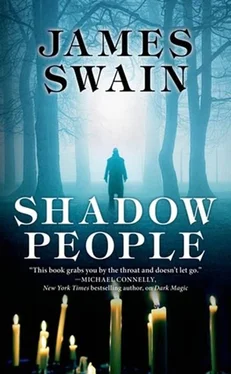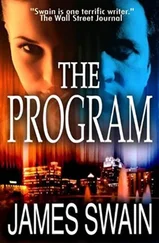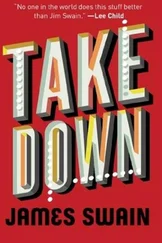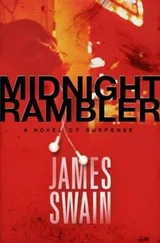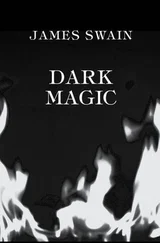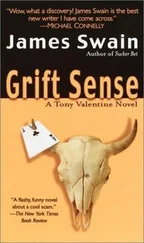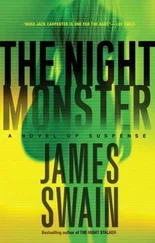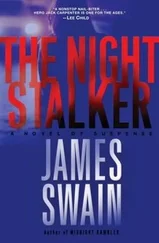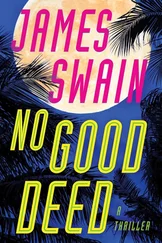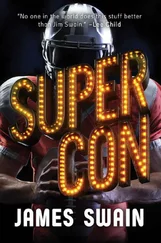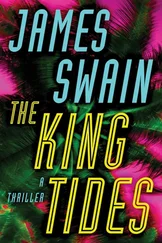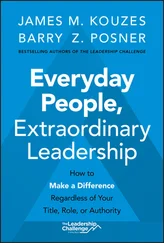“One!” the crowd echoed.
“Two.”
“Two!”
Max started to say “Three” and dumped the bucket into the crowd. Silver-colored confetti floated to the sidewalk, the coins miraculously gone. Max gave a matadorlike bow.
It was all about the applause. Shakespeare had said that, and he’d been right. The crowd rewarded Max generously. When the applause subsided, several members of the crowd tried to give Max tips. The old magician politely but firmly refused. Only when the crowd had dispersed did he address his student.
“Why, Peter, it’s good to see you,” Max said.
“Why didn’t you tell me I was a murderer?” Peter asked.
* * *
They sat on a bench with their backs to the gloomy Hudson. Max treaded softly.
“You look troubled,” Max said. “Have the shadow people visited you again? I saw one earlier when I stepped out of my apartment.” He patted the five-pointed star resting beneath his shirt. “Thank God you gave me this.”
“I didn’t come here to talk about the shadow people,” Peter said.
“Milly saw one, too,” Max said, as if not hearing him. “So did Lester, and Homer called to tell me that his wife believes one was floating outside their apartment window this morning around breakfast time. Have you figured out what they want?”
“That’s simple. They want me.”
“But why? Still no clue? I would have thought they would have made their intentions known by now. The spirits aren’t ones to beat around the bush, you know.”
Peter shook his head. He had three days left to save Rachael from walking into Dr. Death’s trap. Right now, though, he needed to deal with his own issues, and uncover the truth, as ugly as it might be. “I want to talk to you about the night my parents perished. I learned today that I was roaming around the city for five hours, and that a kindly old man who bore a striking resemblance to you deposited me at the police station house at three o’clock in the morning.”
Max lowered his eyes. “Is that so,” he mumbled.
“Was it you? Please be honest with me about this.”
“I believe it was.”
“Thank you. So here’s the question I want to ask you, Max. When you found me that night, were my hands covered in blood?”
His teacher’s head snapped, and he locked eyes with his student. “Who told you that?”
“Does it matter?”
“Yes, it most certainly does.”
“Will you tell me the truth?”
“Tell you the truth about what?”
“Me.”
“You want to know the truth about you?”
“Yes, Max. Something tells me you know exactly who I am.”
Max placed his arm around Peter’s shoulders, and pulled him close to his chest. With his other hand, he ran his knuckles across his hair. Max hadn’t done that to him in a long time, and it brought a long-forgotten smile to Peter’s face.
“I’ll tell you who you are,” Max said. “You are one of the most caring and generous people I have ever known. That’s who you are, and I’m proud to have helped raise you. Is that good enough for you?”
“No. I want to know if there was blood on my hands.”
Max scowled and released him. “How much do you remember from that night?”
“Nothing. It’s all a blank.”
“There’s your answer. There wasn’t any blood.”
“But that’s not true,” he said, hearing the fear in his voice. “I went on a rampage that night, and killed six men in the city. The police confirmed it. I saw the cold case file with photographs of my victims. It was awful.”
Max winced like he’d been kicked. A deck of cards appeared in his hands. He fanned and cut them one-handed without being disrespectful. “So you know.”
“Yes. Now tell me the rest.”
“If you insist. At the exact moment your mother and father were abducted, Milly Adams was taking a hot bath. Milly had a vision, and saw your parents being shoved into a car at gunpoint. She knew your parents were doomed, but held out hope for you.”
“Did Milly see me in her vision?”
“Yes. She said you changed.”
“Into a monster?”
“She said you turned into a little demon. Milly alerted her psychic friends, and asked us to look for you. I owned a car at the time, and was given an area to search. I looked for hours, and finally found you on Ninth Avenue.”
“What was I doing?”
At first, Max did not respond. The pools of black reappeared and Peter felt all the more ready to step into one. “Please, Max. Tell me.”
“You were in the act of interrupting a serious crime,” Max said solemnly. “A mugger was robbing an elderly man and kicking him. You jumped in, and got your hands around the mugger’s throat. You were four and a half feet tall and weighed seventy pounds. The mugger was a brute, and four times your size, yet he didn’t stand a chance.”
“Did I kill him?”
“You snapped his neck like it was a bread stick. But it was for a good cause. As were the others, I’m sure.”
Dag had made a similar comment, as if the six killings were justifiable. Peter didn’t believe there was ever a good reason to take a human life. The truth was, he’d gone berserk that night, and become a killing machine. How he was going to live with that, he had no idea.
“What happened then?”
“I took you home, where I cleaned you up, while Anna fixed you something to eat,” Max replied. “You remember how my wife always wanted to feed everyone. Anyway, you’d calmed down by then, and gone back to being a little boy. A very frightened little boy, I might add. It was Anna’s idea to take you to the police in the hopes you might identify the men who’d stolen your parents away. Which was exactly what I did.”
The cards were snapped in a fan. They had shrunk to half their size. Another fan, and they shrunk to the size of a matchbook. Then, like a puff of smoke, they were gone.
“But why did you do that, Max?” he asked pleadingly. “Didn’t the fact that I’d killed six men weigh on your decision? I was a dangerous little boy. Shouldn’t you have taken me to a hospital instead?”
Max opened his hands and the deck of cards miraculously reappeared. Seeing them made Peter swallow hard. The cards had been there all along, perhaps up Max’s sleeve, or someplace else, but hiding in plain sight nonetheless. So simple, yet it had fooled him.
“You had killed before, you do know that,” Max said.
“The burglar at our apartment. He died?”
“Of course he died. I mean, before that.”
Someone could have knocked him over with a feather.
“I don’t know what you’re talking about,” he stammered.
“So you don’t know the truth, then.”
The truth. Peter had been waiting a long time to hear the truth. Max rose from the bench and motioned for Peter to rise as well.
“Let’s take a walk,” he said.
Down at street level they went to a hidden Italian eatery called Pepe Giallo, its motto, “Feeding the Starving Artists since 1997.” For a restaurant in New York to be Italian, it not only had to serve authentic Italian fare, but had to be run by Italians with accents and rude manners. Pepe Giallo had all those things. A host led them to a small courtyard in the back with rustic redbrick walls and a murky skylight. Tossing a pair of menus on the table, he walked away.
“I’m not hungry. Let’s go someplace else,” Peter said.
“Nonsense, you’re always hungry, even though you manage to never gain weight,” Max said. “Food will make you feel better. Try the roasted eggplant. It’s wonderful.”
An indifferent waiter took their drink orders. When he was gone, Max glanced at a couple sitting nearby. Deciding they were not a threat, he leaned forward and said, “I once read a quote by Ernest Hemingway that stayed with me. Hemingway said that memoirs are fiction. People reinvent their pasts to suit them. We take out the things we don’t want repeated, and embellish the things we do. When it comes to the past, there is no such thing as the truth.”
Читать дальше
